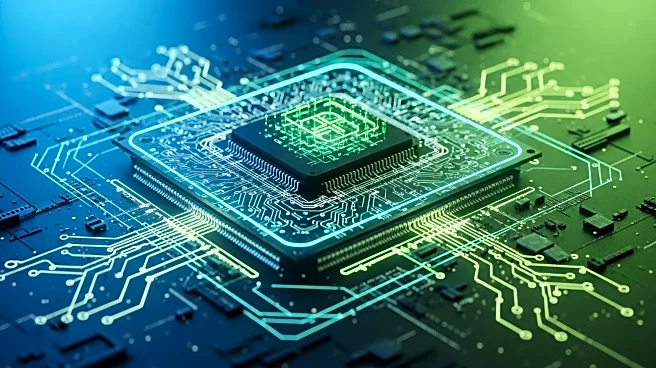What's Happening?
Qualcomm Technologies has announced its acquisition of Arduino, a leading open-source hardware and software company. This strategic move is part of Qualcomm's broader initiative to democratize access to its advanced AI and computing technologies. The acquisition follows Qualcomm's recent integrations of Edge Impulse and Foundries.io, further solidifying its commitment to providing a comprehensive edge platform that includes hardware, software, and cloud services. Arduino, known for its simplicity and affordability, will maintain its open-source ethos and community-driven approach while benefiting from Qualcomm's technological prowess. The acquisition aims to empower a diverse range of developers, including entrepreneurs, tech professionals, and hobbyists, by providing them with tools to rapidly prototype and commercialize new solutions.
Why It's Important?
This acquisition is significant as it positions Qualcomm to further penetrate the edge and IoT hardware markets, leveraging Arduino's extensive community of over 33 million developers. By integrating Arduino's open-source platform with Qualcomm's advanced technologies, the company aims to accelerate the development of AI-powered solutions across various industries. This move could potentially lead to a surge in innovative applications, from smart home devices to industrial automation systems. The acquisition also highlights a growing trend in the tech industry towards open-source collaboration, which can drive innovation and reduce barriers to entry for smaller developers and startups.
What's Next?
Following the acquisition, Arduino will introduce the Arduino UNO Q, a next-generation single board computer designed to facilitate AI-powered development. This new product will feature a dual architecture combining a Linux-capable microprocessor with a real-time microcontroller, enabling high-performance computing and real-time control. The UNO Q will be compatible with the Arduino IDE and the new Arduino App Lab, an integrated development environment aimed at streamlining the development process. As the acquisition awaits regulatory approval, stakeholders in the tech industry will be closely monitoring the integration process and its impact on the developer community.
Beyond the Headlines
The acquisition of Arduino by Qualcomm could have broader implications for the tech industry, particularly in terms of fostering innovation through open-source platforms. By maintaining Arduino's independent brand and community spirit, Qualcomm is likely to encourage a culture of collaboration and knowledge sharing. This approach could lead to more rapid advancements in AI and IoT technologies, as developers from diverse backgrounds contribute to and benefit from the shared resources. Additionally, the move underscores the importance of accessibility in technology development, as Qualcomm aims to make its cutting-edge tools available to a wider audience.









